
Germs are everywhere
In general, the more things that you touch on a daily or regular basis, the higher the risk you’ll also pick up bacteria and viruses, says Kristine Arthur, MD, an internist at MemorialCare Orange Coast Medical Center in Fountain Valley, California. “It is nice to share, but not ideal to share germs,” she says. Although it’s sometimes inevitable to transfer germs, especially if you live with other people, it’s still possible to stay healthy and limit their spread if you take some precautions, according to Dr. Arthur. Keeping you and your friends or family free from excess germs starts with not sharing the following items that germ experts definitely wouldn’t.

Pens
The clipboard pen is one of the filthiest items in your doctor’s office. Researchers found the clipboard pen has more than 46,000 times more germs than an average toilet seat. That’s why Dr. Arthur doesn’t share or borrow pens provided in public places, especially in your doctor’s office. “Everyone is touching them, and in a place where people are sick they are even more likely to have bacteria or viruses on them,” she says. “Bring your own pen for filling out forms.”

Silverware and straws
Taking a bite or sip of someone else’s meal or drink seems like no big deal—but not so fast. Make sure you aren’t using their straws, silverware, or cup, which are some things Dr. Arthur won’t share. What stops her from sharing these items is that they likely have saliva on them. “It is a good general rule to follow because even if you or another family member feel fine right now, you may be at the early stages of a cold or flu and not realize you are contagious yet,” she says.

Fast-food trays
Once your number is up, and your feast of fries and burgers is ready, you might be quick to grab a tray and chow down. You’re actually getting more than your order if you use the plastic trays at fast-food restaurants. “Not only are they used by everyone, but they are typically only wiped down with a cloth and not thoroughly cleaned with hot water and soap,” Dr. Arthur says. “If you do get your food on them, take it off and put the tray back; never set your food directly on it.” Fast-food trays may be a hot spot for bacteria, but here’s why you should be blaming the bacteria in your gut for your junk food cravings.
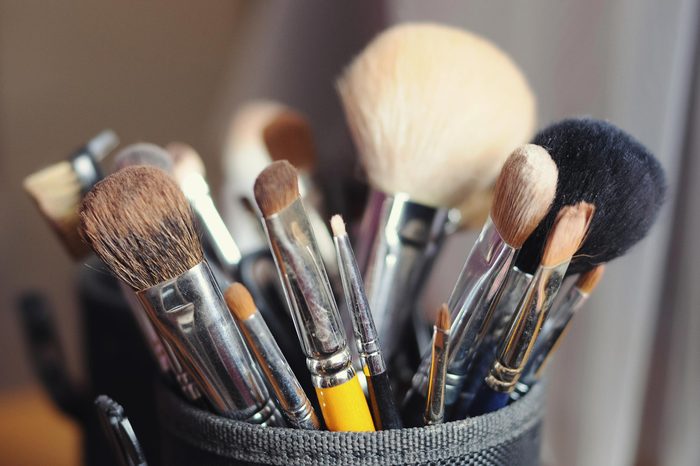
Makeup and makeup brushes
Open makeup containers invite bacteria growth. Add in sharing makeup with a friend, and you’re also adding more opportunity for viruses to transfer over, says Julia Blank, MD, a family medicine physician at Providence Saint John’s Health Center in Santa Monica, California, Dr. Blank says. Sharing eye makeup could result in conjunctivitis while sharing lip products could make you susceptible to mono, herpes, and strep, according to Dr. Blank. That’s why you should replace your cosmetics frequently and never borrow things like liquid eyeliner, mascara, or lipstick. But especially when it comes to makeup brushes, make sure you (a.k.a. germaphobe) knows how to properly clean them.

Phones
Try not to share a cellphone or a landline phone as much as possible, Dr. Arthur says. Phones come in close contact with the face and mouth, which is part of the reason why your phone screen is way dirtier than you thought it was. If sharing is necessary, put the phone on speaker, so there’s no skin-to-skin contact.
All germaphobe fears aside, find out how a smartphone can better manage your health concerns.
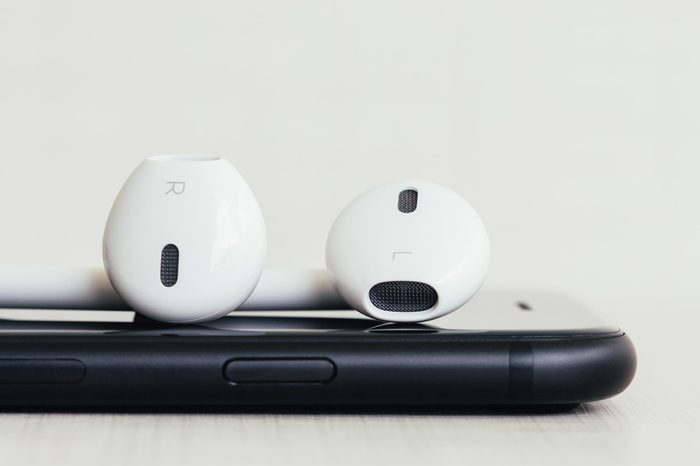
Earbuds
Borrowing headsets seem innocent enough, but you really shouldn’t share earbuds with anyone. Although earwax is natural ear protection, earphones trap the once-innocent bacteria in the wax. Any wax building up on earphones traps and grows this bacteria, which could lead to infections. Regularly clean your earbuds and put your phone on speaker to share tunes with a friend.
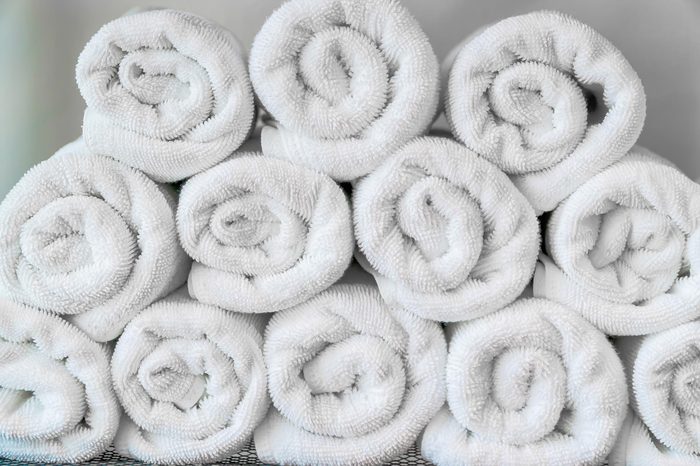
Towels
Towels welcome bacteria since they are typically damp and absorbent, which is why you shouldn’t share them, according to Dr. Arthur. Some bacteria can survive for hours on wet surfaces, and fungus loves damp towels, Dr. Blank adds. It doesn’t help that people also usually wash their hands incorrectly, Dr. Blank says, leaving bacteria on the skin. That bacteria transfers to the hand towel and then onto the next person who dries their hands. Stop this cycle in its tracks, especially if you have guests over, and opt for fancy paper hand towels that are more sanitary, Dr. Arthur says. No one wants to share a damp, used towel.
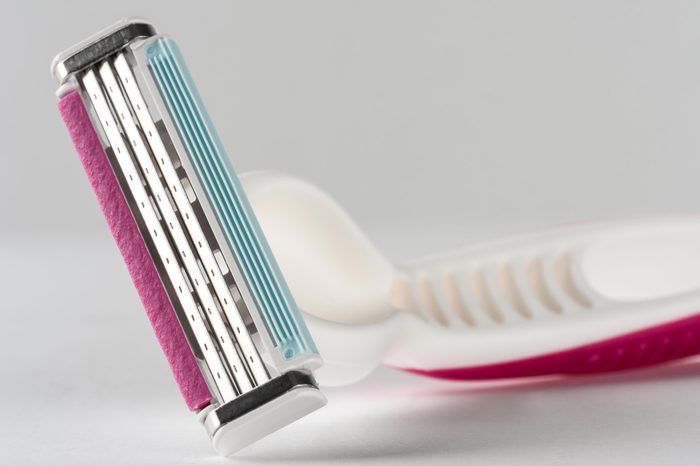
Razors
Nicking yourself in the shower is more common than not, hence why Dr. Arthur and Dr. Blank both say not to share these blades. Even borrowing someone’s razor for a quick touch up could be bad. Not only can sharing razors spread bacteria, but it could also spread more serious blood-borne pathogens like hepatitis B and C, Dr. Arthur and Dr. Blank say.
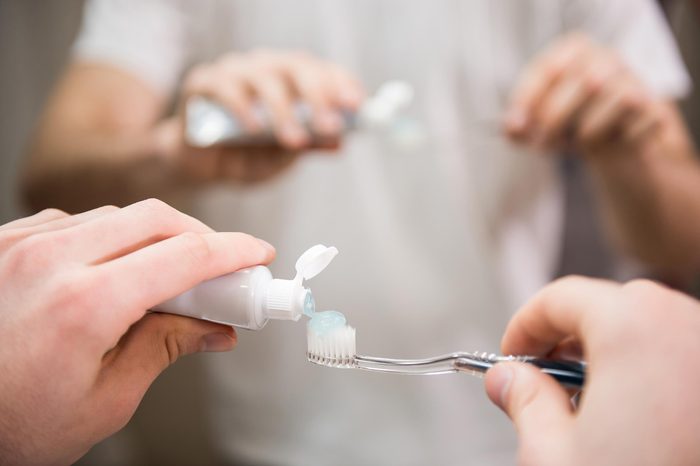
Toothbrushes
The human mouth is a wonderful breeding ground for all sorts of bacteria and viruses, according to Dr. Blank. That’s why she doesn’t share her toothbrush. “Infectious microorganisms get deposited on wet toothbrush bristles, and can be transmitted to anyone who uses that toothbrush,” Dr. Blank says. The worst case scenario? Someone with a weak immune system uses a contaminated toothbrush and develops a potentially life-threatening infection, such as meningitis, according to Dr. Blank. And if you’re looking to have healthier gums, the germaphobe in you should really learn how to prevent against gum disease.
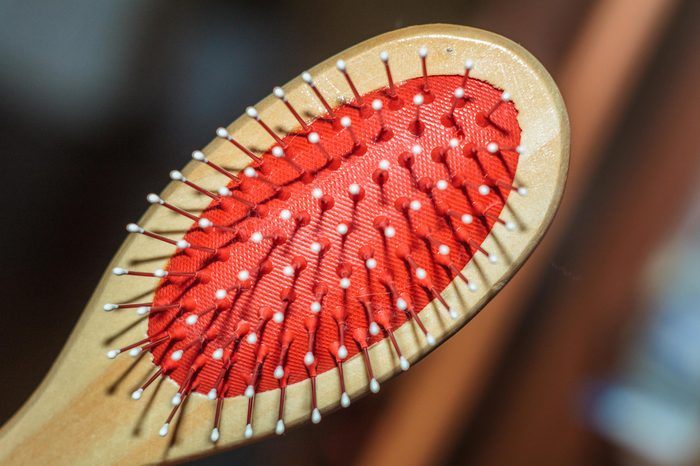
Hair brushes
Everything from dust mites and oils to dead skin cells is on your brush, so you might want to keep yours to yourself. Let the worst case scenario—lice—be a warning to clean and not share brushes with anyone. If you do get lice, it easily spreads to other things like bed sheets or the couch after it reaches your hair, according to the CDC. Try cleaning your brushes with antibacterial soap every few weeks.
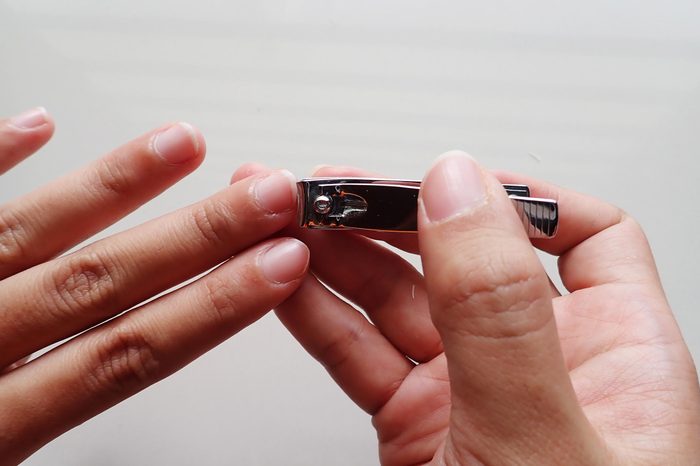
Nail clippers
Most people don’t regularly clean their nail clippers and also share them casually with friends and or family. Similarly to razors, this could be a dangerous habit because sharing items that could come into contact with another person’s blood is one way to spread hepatitis C. Of course, there’s also the possibility of spreading fungal or bacterial infections, too.
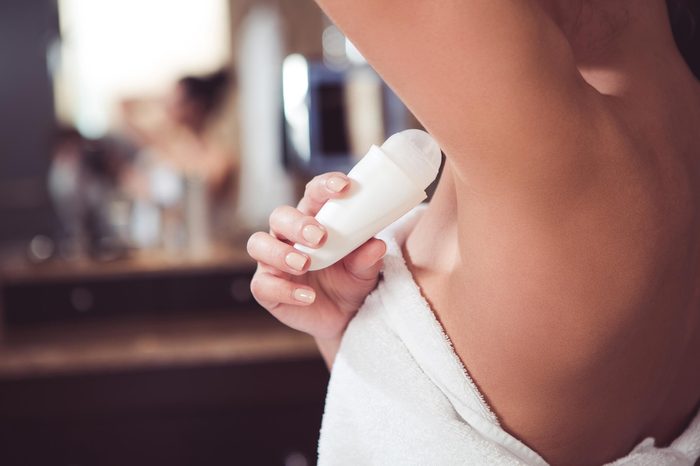
Antiperspirant
Swapping germs from one armpit to another is as easy as borrowing someone’s antiperspirant. Deodorants, however, are less risky when it comes to sharing because they usually have an alcohol base. The alcohol makes your skin acidic and less attractive to bacteria, according to Mayo Clinic. Antiperspirants are another story since they typically have aluminum which exclusively blocks sweat pores, not bacteria.
Realizing you’re quite the germaphobe? It’s time you learn about the most germ-infested things you touch every single day.
